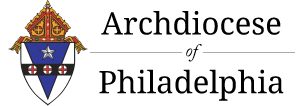Lent is a time for self-examination and repentance; a time for good spiritual reading and the Sacrament of Penance. It’s also a time for renewing our sense of solidarity with fellow Christians around the world. It’s a moment to remember the witness of so many Christians who’ve died simply because they were Christian.
The world rightly remembers the mass murder of Jews and other minorities by Nazi Germany during the Second World War. In its scope, the Shoah dwarfs anything in human history, and its echoes continue today in the rise of anti-Semitism in Europe, much of it driven by radicalized Islam. But the Shoah was by no means the only mass murder carried out in the 20th century.
In fact, the dress rehearsal for the Nazi extermination of the Jews took place exactly 100 years ago, in 1915. The genocide was carried out by Turkish authorities, and it murdered more than 1 million Armenians, a people who were overwhelmingly Christian. Religion wasn’t the only reason for the killings – ethnic and economic resentments of Turkey’s Armenian minority played an important role – but Muslim contempt for the “unbelievers” legitimized the violence and was a powerful current throughout the killings. Men, women and children were turned out of their homes, marched to exhaustion, and starved, beaten, hanged and burned to death by the tens of thousands. The systematic murder campaign went on in bloody waves into the 1920s. Witnesses recalled Turks taunting their victims with shouts of “Where is your Christ now? Where is your Jesus? Why does He not save you?”
To this day, Turkey has never adequately acknowledged the Armenian genocide. As President Jimmy Carter once remarked, “there weren’t any Nuremburg trials” for the mass murder inflicted on the Armenians. During the Cold War, Turkey was a NATO ally. The United States and Europe found it easier to turn a blind eye to history than to resurrect a crime from the past. Today, with the resurgence of militant Islam inside Turkey itself, a full national truth-telling by Turkish authorities may be even more remote. Armenians were the first nation in the world to formally adopt Christianity in A.D. 301. Today, in their historic home regions of modern Turkey, their culture and memory have been wiped out.
Every year on April 24, Armenians around the world celebrate Remembrance Day for the victims of the 1915 genocide. This year, on the centenary of that mass murder, Christians from every tradition need to remember and pray for the victims of that genocide, which remains one of the worst unrepented crimes in history. We also need to remember that the persecution and murder of Christians still continues at the hands of ISIS and radicalized Islam throughout the Middle East. And to date, our national leadership has been utterly ineffective in stopping it – or even fully engaging it.
We Americans take for granted our traditions of religious liberty, human rights and judicial process. We see the coexistence – and even the friendship — of different religious communities and beliefs as quite normal. But it’s not. We too often don’t understand the uniqueness of that gift. Today, in many places around the world, living as a Christian invites discrimination, hatred and violence. The beheading of Christians by ISIS is the latest crime in a long history of Middle Eastern Christian martyrdom – not the phony and homicidal “martyrdom” that involves blowing up innocent women and children, but the real martyrdom of being murdered for one’s belief in Jesus Christ.
Lent is a time of repentance. It’s also a time for forgiving even the wicked. But it’s also a time to remember and learn from history — even when the whole world wants to forget it. This Lent we need to remember and pray for the Armenian Christians who died 100 years ago. Like us, they were part of God’s people; the people of Jesus Christ. The memory of their suffering should turn our hearts and our energies to helping the millions of Christians now suffering in the Middle East and around the world.
For background on the Armenian genocide, read “The Burning Tigris: The Armenian Genocide and America’s Response,” by Peter Balakian (HarperCollins, New York, 2004; available on Kindle and in paperback).
Editor’s Note: Columns will be published each week on www.CatholicPhilly.com and can also be found at https://archphila.org/archbishop-chaput/statements/statements.php.
Contact
Kenneth A. Gavin
Director of Communications
215-587-3747






